Participants
To view a participant’s bio, please click on their name below.
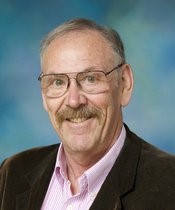
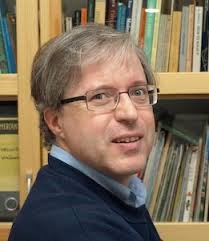

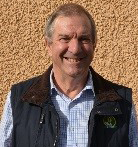
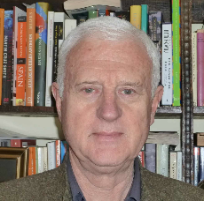
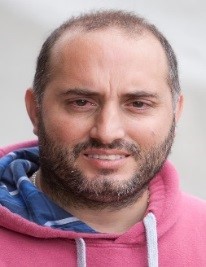
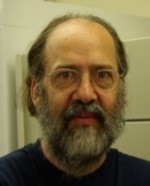
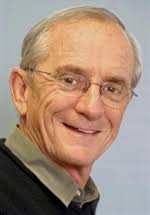

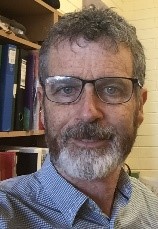

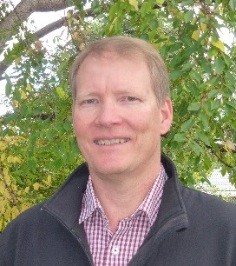

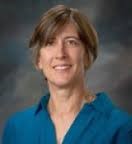

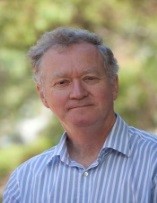

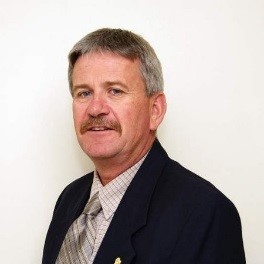

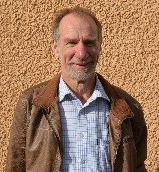
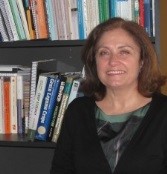
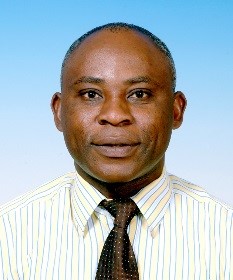
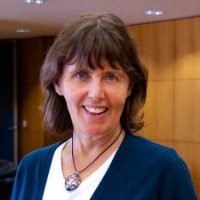

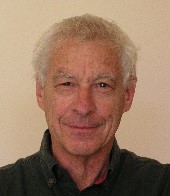

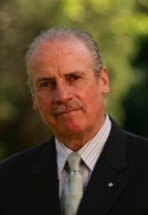
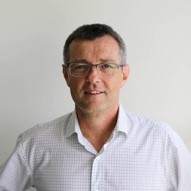

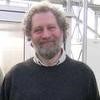
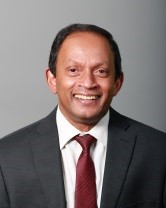
To view a participant’s bio, please click on their name below.
 Allan Mayfield brings extensive agronomy and farming knowledge and 40 years of experience in government and as an independent agronomic consultant to his role with the South Australian Grain Industry Trust. Allan has a Bachelor of Agricultural Science and PhD in Plant Pathology. He was instrumental in setting up the Hart Field Site and starting precision agriculture and associated research in South Australia. His industry involvement is extensive and includes seven years as a GRDC Southern Panel member, six years as research coordinator for SPAA (Southern Precision Agriculture Australia) and 10 years as the research manager for the Hart Field Site Group. In addition to his role with SAGIT, he assists the Grains Research and Development Corporation in project management. He is a life member of the Crop Science Society of SA, a fellow of the Australian Institute of Agricultural Science & Technology, and a Churchill Fellow 2002.
Allan Mayfield brings extensive agronomy and farming knowledge and 40 years of experience in government and as an independent agronomic consultant to his role with the South Australian Grain Industry Trust. Allan has a Bachelor of Agricultural Science and PhD in Plant Pathology. He was instrumental in setting up the Hart Field Site and starting precision agriculture and associated research in South Australia. His industry involvement is extensive and includes seven years as a GRDC Southern Panel member, six years as research coordinator for SPAA (Southern Precision Agriculture Australia) and 10 years as the research manager for the Hart Field Site Group. In addition to his role with SAGIT, he assists the Grains Research and Development Corporation in project management. He is a life member of the Crop Science Society of SA, a fellow of the Australian Institute of Agricultural Science & Technology, and a Churchill Fellow 2002.
 John Kirkegaard is a Chief Research Scientist at CSIRO Agriculture and Food, based in Canberra and Adjunct Professor at the University of Western Australia and Charles Sturt University. He was raised on the Darling Downs in rural Queensland, studied agriculture at The University of Queensland where he received his PhD studying the effects of soil compaction on the growth of grain legumes in 1990. The same year, he joined CSIRO Plant Industry in Canberra to work on the Land and Water Care Project, and his subsequent career at CSIRO has focussed on understanding soil-plant interactions to improve the productivity, resource-use efficiency and sustainability of dryland farming systems. Over the last 28 years, his research teams and collaborators have investigated aspects of improved crop sequence, rotational benefits and productivity of canola and other Brassica species, improved subsoil water use by crops, development and integration of dual-purpose crops, and improved productivity in conservation agriculture. He has led numerous national research programs, is a regular invitee to international forums and advisory committees on agriculture and food security, and was Visiting Professor at Crop Science Department, University of Copenhagen in 2012. A hallmark of his innovative research has been his active integration of farmers and advisers into his research teams, which has undoubtedly led to more rapid adoption and impact in agriculture. He was recipient of the grains industry “Seed of Light” award in 2009 for effective communication of research results to industry, and in 2014 his GRDC National WUE team was awarded the Eureka Prize in sustainable agriculture for research to improve the water-use efficiency of Australian agriculture. He was elected a Fellow of the Australian Academy of Science in 2016, was recipient of the Farrer Medal for distinguished contribution to agriculture in 2017, and is an ISI Web of Knowledge Highly Cited Researcher for Agricultural Sciences in 2018.
John Kirkegaard is a Chief Research Scientist at CSIRO Agriculture and Food, based in Canberra and Adjunct Professor at the University of Western Australia and Charles Sturt University. He was raised on the Darling Downs in rural Queensland, studied agriculture at The University of Queensland where he received his PhD studying the effects of soil compaction on the growth of grain legumes in 1990. The same year, he joined CSIRO Plant Industry in Canberra to work on the Land and Water Care Project, and his subsequent career at CSIRO has focussed on understanding soil-plant interactions to improve the productivity, resource-use efficiency and sustainability of dryland farming systems. Over the last 28 years, his research teams and collaborators have investigated aspects of improved crop sequence, rotational benefits and productivity of canola and other Brassica species, improved subsoil water use by crops, development and integration of dual-purpose crops, and improved productivity in conservation agriculture. He has led numerous national research programs, is a regular invitee to international forums and advisory committees on agriculture and food security, and was Visiting Professor at Crop Science Department, University of Copenhagen in 2012. A hallmark of his innovative research has been his active integration of farmers and advisers into his research teams, which has undoubtedly led to more rapid adoption and impact in agriculture. He was recipient of the grains industry “Seed of Light” award in 2009 for effective communication of research results to industry, and in 2014 his GRDC National WUE team was awarded the Eureka Prize in sustainable agriculture for research to improve the water-use efficiency of Australian agriculture. He was elected a Fellow of the Australian Academy of Science in 2016, was recipient of the Farrer Medal for distinguished contribution to agriculture in 2017, and is an ISI Web of Knowledge Highly Cited Researcher for Agricultural Sciences in 2018.
 Bill Long is a farmer and for the past 23 years has managed his own company – Ag Consulting Co, a South Australian based agricultural consulting business established in 1995. The company provides agronomic and farm business management advice to farm businesses across SA and manages and conducts research and communication projects to growers on a range of agronomic and farm management issues. He has participated in and managed projects on carbon, climate, snails, controlled traffic, seeding systems, inter-row sowing systems, cereal and pulse canopy management, leaf disease control in cereals and pulses, weed management, plant growth regulants, pollination, soil carbon and stubble. He has been a member of the BCG Yield Prophet team to improve understanding of soil water and the use of crop modeling to assist advisors and farmers knowledge on soil water/plant production relationships. He was a founding member of the Yorke Peninsula Alkaline Soils Group, the SA and Vic Independent Consultant group and the Ag Excellence Alliance and is past Chairman and committee member of; SA GRDC Advisor Update Committee, TopCrop SA, Crop Science Society of SA and the Snail Management Action Group and the Grain Pest advisory group. He served on the GRDC’s southern panel from 2011 until 2017. Bill has developed farm business benchmarking programs and was involved in the development of Plan to Profit®, a farm business analysis tool. Bill holds a bachelor of Applied Science in Agriculture, is a graduate of the Institute of Company Directors and undertook studies in the use of decision support tools and farmer and advisor decision-making processes. He has a keen interest in ag extension and adoption practices. In more recent times and as a result of the studies in decision-making, Bill spends more time with clients running farm boards and thinking strategically about their business management and development opportunities. With his wife Jeanette and son Will, he grows lentils, chickpeas, beans, cereals and canola, and runs sheep on his properties on Eyre Peninsula and the mid north in SA. He is passionate about the grains industry and enjoys the complexity and challenges of understanding and managing farming systems across Australia.
Bill Long is a farmer and for the past 23 years has managed his own company – Ag Consulting Co, a South Australian based agricultural consulting business established in 1995. The company provides agronomic and farm business management advice to farm businesses across SA and manages and conducts research and communication projects to growers on a range of agronomic and farm management issues. He has participated in and managed projects on carbon, climate, snails, controlled traffic, seeding systems, inter-row sowing systems, cereal and pulse canopy management, leaf disease control in cereals and pulses, weed management, plant growth regulants, pollination, soil carbon and stubble. He has been a member of the BCG Yield Prophet team to improve understanding of soil water and the use of crop modeling to assist advisors and farmers knowledge on soil water/plant production relationships. He was a founding member of the Yorke Peninsula Alkaline Soils Group, the SA and Vic Independent Consultant group and the Ag Excellence Alliance and is past Chairman and committee member of; SA GRDC Advisor Update Committee, TopCrop SA, Crop Science Society of SA and the Snail Management Action Group and the Grain Pest advisory group. He served on the GRDC’s southern panel from 2011 until 2017. Bill has developed farm business benchmarking programs and was involved in the development of Plan to Profit®, a farm business analysis tool. Bill holds a bachelor of Applied Science in Agriculture, is a graduate of the Institute of Company Directors and undertook studies in the use of decision support tools and farmer and advisor decision-making processes. He has a keen interest in ag extension and adoption practices. In more recent times and as a result of the studies in decision-making, Bill spends more time with clients running farm boards and thinking strategically about their business management and development opportunities. With his wife Jeanette and son Will, he grows lentils, chickpeas, beans, cereals and canola, and runs sheep on his properties on Eyre Peninsula and the mid north in SA. He is passionate about the grains industry and enjoys the complexity and challenges of understanding and managing farming systems across Australia.
 Lachlan Lake is a pulse physiologist in the Sustainable Systems Research Division, SARDI. Lachlan has been working in agricultural research since 2003 in projects focusing on Australia’s major pulse species in projects investigating physiological drivers of yield, stress adaptation, N fixation, disease resistance and modelling. Lachlan completed his PhD in chickpea physiology at the University of Adelaide and is currently undertaking a GRDC funded Postdoctoral Fellowship investigating canopy dynamics and waterlogging tolerance in lentil. Lachlan’s work has been driven by the importance of pulses in sustainable farming systems and the need to improve pulse adaptation to Australian conditions in the face of limited resources.
Lachlan Lake is a pulse physiologist in the Sustainable Systems Research Division, SARDI. Lachlan has been working in agricultural research since 2003 in projects focusing on Australia’s major pulse species in projects investigating physiological drivers of yield, stress adaptation, N fixation, disease resistance and modelling. Lachlan completed his PhD in chickpea physiology at the University of Adelaide and is currently undertaking a GRDC funded Postdoctoral Fellowship investigating canopy dynamics and waterlogging tolerance in lentil. Lachlan’s work has been driven by the importance of pulses in sustainable farming systems and the need to improve pulse adaptation to Australian conditions in the face of limited resources.
 Malcolm Buckby’s career has ranged from being the manager of a family farm to being the elected representative for the Light electorate in the House of Assembly in the South Australian Parliament, serving as the Minister for Education, Children’s Services and Training, Shadow Minister and Member of Standing Committees. My time as a Research Economist at the University of Adelaide gave me the knowledge of the SA economy and the privilege of working with some of the best economic minds in the state. I am currently the Manager of the Rural Services Division of the Royal Agricultural and Horticultural Society of SA and deliver administration and policy advice to a range of rural bodies including Beef and Sheep Societies, SA’s Country Shows and the SA Grain Industry Trust.
Malcolm Buckby’s career has ranged from being the manager of a family farm to being the elected representative for the Light electorate in the House of Assembly in the South Australian Parliament, serving as the Minister for Education, Children’s Services and Training, Shadow Minister and Member of Standing Committees. My time as a Research Economist at the University of Adelaide gave me the knowledge of the SA economy and the privilege of working with some of the best economic minds in the state. I am currently the Manager of the Rural Services Division of the Royal Agricultural and Horticultural Society of SA and deliver administration and policy advice to a range of rural bodies including Beef and Sheep Societies, SA’s Country Shows and the SA Grain Industry Trust.
 John Porter is an internationally known agro-ecological scientist with an expertise in ecosystem services in agro-ecosystems, including agro-ecology, simulation modelling and food system ecology. His main contribution has been multi-disciplinary and collaborative experimental and modelling work in the response of arable crops, energy crops and complex agro-ecosystems to their environment with an emphasis on climate change, ecosystem services and food systems. Porter has published 145 papers in peer-reviewed journals out of a total of about 350 publications. On average, his peer-reviewed papers have been cited more than 100 times each. He has personally received three international prizes for his research and teaching and two others jointly with his research group. His career H index is 57 and with 131 papers receiving over 10 citations. From 2011 to 2014 he led the writing of the critically important chapter for the IPCC 5th Assessment in Working Group 2 on food production systems and food security, including fisheries and livestock. This chapter was one of the most cited from the IPCC 5th Assessment and formed an important scientific bedrock of the COP21 agreement in Paris in 2015.
John Porter is an internationally known agro-ecological scientist with an expertise in ecosystem services in agro-ecosystems, including agro-ecology, simulation modelling and food system ecology. His main contribution has been multi-disciplinary and collaborative experimental and modelling work in the response of arable crops, energy crops and complex agro-ecosystems to their environment with an emphasis on climate change, ecosystem services and food systems. Porter has published 145 papers in peer-reviewed journals out of a total of about 350 publications. On average, his peer-reviewed papers have been cited more than 100 times each. He has personally received three international prizes for his research and teaching and two others jointly with his research group. His career H index is 57 and with 131 papers receiving over 10 citations. From 2011 to 2014 he led the writing of the critically important chapter for the IPCC 5th Assessment in Working Group 2 on food production systems and food security, including fisheries and livestock. This chapter was one of the most cited from the IPCC 5th Assessment and formed an important scientific bedrock of the COP21 agreement in Paris in 2015.
 Francis Ogbonnaya is the Program Manager, Oilseeds and Pulses, Grains Research and Development Corporation (GRDC) and has served at various levels within the organization. At GRDC, Ogbonnaya has been involved in setting R & D initiative and strategies that have strongly influenced and promoted innovative R & D options aimed at delivering enduring profitable outcomes for Australian farmers. Ogbonnaya joined GRDC in 2012 from the International Center for Research in Dryland Agriculture (ICARDA), Syria where he led and coordinated multinational and international collaborative R&D initiatives with National Agricultural Research Institutes (NARIs) in Africa, Central Asia and Middle East and Advanced Research Institutions (ARIs) in Australia, Europe and North America and contributed to the formal release of several high-yielding varieties by national research partners in Africa and Central Asia. Together with university lecturers, he has co-supervised thesis research on wheat improvement and mentored many postgraduate students (MSc and PhD), mostly in Africa, Australia, Central Asia, Middle East and European countries for which he received The Jeanie Borlaug Laube Women in Triticum Mentor Award (2012). Prior to starting at ICARDA, Ogbonnaya served as Scientist and Senior Research Scientist and led key scientific research team within the Department of Primary Industry Victoria, Biosciences Research Division working on translational research with emphasis on exploiting primary gene pool of wheat to improve cereal cyst nematode control, pre-harvest sprouting tolerance, salinity tolerance, multiple disease resistance and water limited yield improvement in wheat. Ogbonnaya obtained his PhD degree in Agricultural Science (Plant Breeding and Genetics) from the University of Melbourne, Australia, and a B. Agric Science Honours degree from the University of Nigeria, Nsukka. Ogbonnaya has published over 150 papers in referred journals, book chapters and peer reviewed conference papers.
Francis Ogbonnaya is the Program Manager, Oilseeds and Pulses, Grains Research and Development Corporation (GRDC) and has served at various levels within the organization. At GRDC, Ogbonnaya has been involved in setting R & D initiative and strategies that have strongly influenced and promoted innovative R & D options aimed at delivering enduring profitable outcomes for Australian farmers. Ogbonnaya joined GRDC in 2012 from the International Center for Research in Dryland Agriculture (ICARDA), Syria where he led and coordinated multinational and international collaborative R&D initiatives with National Agricultural Research Institutes (NARIs) in Africa, Central Asia and Middle East and Advanced Research Institutions (ARIs) in Australia, Europe and North America and contributed to the formal release of several high-yielding varieties by national research partners in Africa and Central Asia. Together with university lecturers, he has co-supervised thesis research on wheat improvement and mentored many postgraduate students (MSc and PhD), mostly in Africa, Australia, Central Asia, Middle East and European countries for which he received The Jeanie Borlaug Laube Women in Triticum Mentor Award (2012). Prior to starting at ICARDA, Ogbonnaya served as Scientist and Senior Research Scientist and led key scientific research team within the Department of Primary Industry Victoria, Biosciences Research Division working on translational research with emphasis on exploiting primary gene pool of wheat to improve cereal cyst nematode control, pre-harvest sprouting tolerance, salinity tolerance, multiple disease resistance and water limited yield improvement in wheat. Ogbonnaya obtained his PhD degree in Agricultural Science (Plant Breeding and Genetics) from the University of Melbourne, Australia, and a B. Agric Science Honours degree from the University of Nigeria, Nsukka. Ogbonnaya has published over 150 papers in referred journals, book chapters and peer reviewed conference papers.
 Stephen Loss has an Honours degree in Agricultural Science and PhD in Plant Nutrition from the University of WA. He worked as a crop agronomist with the WA Department of Agriculture for a decade, before joining CSBP fertilisers where he managed their field trial program and soil and plant testing services for the 12 years. In 2012 Stephen joined ICARDA based in Amman Jordan to lead an ACIAR funded project promoting conservation agriculture in northern Iraq. When the project ended in 2015, Stephen joined GRDC as an R&D Manager initially in Canberra, and then established their new office in Adelaide. He is currently the Manager of Soils and Nutrition for the southern region.
Stephen Loss has an Honours degree in Agricultural Science and PhD in Plant Nutrition from the University of WA. He worked as a crop agronomist with the WA Department of Agriculture for a decade, before joining CSBP fertilisers where he managed their field trial program and soil and plant testing services for the 12 years. In 2012 Stephen joined ICARDA based in Amman Jordan to lead an ACIAR funded project promoting conservation agriculture in northern Iraq. When the project ended in 2015, Stephen joined GRDC as an R&D Manager initially in Canberra, and then established their new office in Adelaide. He is currently the Manager of Soils and Nutrition for the southern region.
 Jairo Palta is an Honorary Research Fellow at CSIRO Agriculture & Food in Perth, Western Australia. He is also Adjunct Research Professor at The University of Western Australia Institute of Agriculture & School of Agriculture and Environment and Visiting Research Professor at the Institute of Water and Land Conservation, Chinese Academy of Sciences, in Yangling, Shaanxi China. He completed a Ph.D in Crop Physiology at La Trobe University, Melbourne, Australia and conducted Post-doctoral research at the Centre for Arid-Zone Studies at University of Bangor, North Wales, UK, and the the Lab of Nuclear Medicine and Radiation Biology of the University of California, Los Angeles (UCLA). He held positions with the International Center for Tropical Agriculture (CIAT) and CSIRO Plant Industry. At CSIRO he was the leader of the Subprogram “Improving Crop and Pasture Production and Quality”, acting leader of the program “Improvement of Rainfed Crops and Pastures”. He also served as Seconded Scientist for the Cooperative Research Centre for Legumes in Mediterranean Agriculture (CLIMA), was member of the Review Panel for the UNEP project “Structure and stability of plant communities in response to drought in East Africa” and the Environmental Physiology Panel for the Ecological Research Division of the US Department of Energy. He is currently involved in several international research initiatives (Expert Working Group [EWG] on Adaptation of Wheat to Abiotic Stress, Nutrient Use Efficiency and Heat and Drought Wheat Improvement Consortium [HeDWIC]. He is one of the Editor-in-Chief of Field Crops Research, Consulting Editor for Plant and Soil, Associate Editor for Crop and Pasture Science, Functional Plant Biology and Frontiers of Plant Sciences. He has published over 160 papers in referred journals and as book chapters and is the editor of two books.
Jairo Palta is an Honorary Research Fellow at CSIRO Agriculture & Food in Perth, Western Australia. He is also Adjunct Research Professor at The University of Western Australia Institute of Agriculture & School of Agriculture and Environment and Visiting Research Professor at the Institute of Water and Land Conservation, Chinese Academy of Sciences, in Yangling, Shaanxi China. He completed a Ph.D in Crop Physiology at La Trobe University, Melbourne, Australia and conducted Post-doctoral research at the Centre for Arid-Zone Studies at University of Bangor, North Wales, UK, and the the Lab of Nuclear Medicine and Radiation Biology of the University of California, Los Angeles (UCLA). He held positions with the International Center for Tropical Agriculture (CIAT) and CSIRO Plant Industry. At CSIRO he was the leader of the Subprogram “Improving Crop and Pasture Production and Quality”, acting leader of the program “Improvement of Rainfed Crops and Pastures”. He also served as Seconded Scientist for the Cooperative Research Centre for Legumes in Mediterranean Agriculture (CLIMA), was member of the Review Panel for the UNEP project “Structure and stability of plant communities in response to drought in East Africa” and the Environmental Physiology Panel for the Ecological Research Division of the US Department of Energy. He is currently involved in several international research initiatives (Expert Working Group [EWG] on Adaptation of Wheat to Abiotic Stress, Nutrient Use Efficiency and Heat and Drought Wheat Improvement Consortium [HeDWIC]. He is one of the Editor-in-Chief of Field Crops Research, Consulting Editor for Plant and Soil, Associate Editor for Crop and Pasture Science, Functional Plant Biology and Frontiers of Plant Sciences. He has published over 160 papers in referred journals and as book chapters and is the editor of two books.
 Megan Ryan completed her PhD in Ecology at the Australian National University. In her thesis she compared the growth and nutrition of crops and pastures on organic and conventional farms, with an emphasis on phosphorus and mycorrhizal fungi. Megan then worked at CSIRO Plant Industry in Canberra where she examined the impact of canola on the growth and nutrition (P, Zn, N) of following cereal crops. Since 2003, Megan has been at the University of Western Australia where her main research area has been pasture ecology and nutrition. During this time Megan has researched a wide range of topics including the potential for domestication of Australian native perennial legumes as pasture species, development of phosphorus-efficient pasture systems, and root morphological and physiological adaptations that aid phosphorus uptake in pasture legumes, chickpeas and native plants; she has also continued to work on mycorrhizal fungi. Since 2015 Megan has been an ARC Future Fellow; her project is focused on how plants adapt to fluctuating availability of phosphorus. Other recent grants focus on identification and renovation of highly oestrogenic pastures and improving seed harvest of subterranean clover. Megan is also involved in the newly established ALBA (Annual Legume Breeding Australia) joint venture between the University of Western Australia and the company PGG Wrightsons.
Megan Ryan completed her PhD in Ecology at the Australian National University. In her thesis she compared the growth and nutrition of crops and pastures on organic and conventional farms, with an emphasis on phosphorus and mycorrhizal fungi. Megan then worked at CSIRO Plant Industry in Canberra where she examined the impact of canola on the growth and nutrition (P, Zn, N) of following cereal crops. Since 2003, Megan has been at the University of Western Australia where her main research area has been pasture ecology and nutrition. During this time Megan has researched a wide range of topics including the potential for domestication of Australian native perennial legumes as pasture species, development of phosphorus-efficient pasture systems, and root morphological and physiological adaptations that aid phosphorus uptake in pasture legumes, chickpeas and native plants; she has also continued to work on mycorrhizal fungi. Since 2015 Megan has been an ARC Future Fellow; her project is focused on how plants adapt to fluctuating availability of phosphorus. Other recent grants focus on identification and renovation of highly oestrogenic pastures and improving seed harvest of subterranean clover. Megan is also involved in the newly established ALBA (Annual Legume Breeding Australia) joint venture between the University of Western Australia and the company PGG Wrightsons.
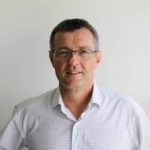 Daniel Rodriguez is a crop scientist with the Centre for Crops Sciences at the University of Queensland. He leads the Farming Systems Research Team and his work focuses on the development and application of quantitative systems modelling approaches in agriculture. He is a leader in the application of these approaches at the crop and whole farm levels. At the crop levels his work focuses on identifying more profitable and less risky combinations of genetic (G) traits and managements (M) across the multiple environments (E) found in the sub-tropical and tropical summer cropping systems of Australia and Eastern and Southern Africa. At the whole farm level, he is interested in quantifying benefits and trade-offs from alternative farm business designs also in Australia and across Eastern and Southern Africa. He was Chief Editor of Agricultural Systems until 2018.
Daniel Rodriguez is a crop scientist with the Centre for Crops Sciences at the University of Queensland. He leads the Farming Systems Research Team and his work focuses on the development and application of quantitative systems modelling approaches in agriculture. He is a leader in the application of these approaches at the crop and whole farm levels. At the crop levels his work focuses on identifying more profitable and less risky combinations of genetic (G) traits and managements (M) across the multiple environments (E) found in the sub-tropical and tropical summer cropping systems of Australia and Eastern and Southern Africa. At the whole farm level, he is interested in quantifying benefits and trade-offs from alternative farm business designs also in Australia and across Eastern and Southern Africa. He was Chief Editor of Agricultural Systems until 2018.
 John Passioura has a bachelor’s degree in agricultural science (1958) and a Ph.D. in soil chemistry (1963) from Melbourne University, Australia. He currently holds an emeritus appointment at CSIRO Agriculture in Canberra, and was formerly Chief Research Scientist and Leader of the Crop Adaptation Program there. His research has ranged over: soil chemistry and physics (transport of water and nutrients in soil); plant physiology (water relations, drivers of growth rate and adaptation to abiotic stresses); and wheat pre-breeding and agronomy directed at improving water-limited productivity of dryland crops. He was elected Fellow of the Australian Academy of Science in 1994. He spent 6 years on partial secondment to the Australian Grains Research and Development Organization (GRDC) where he oversaw a portfolio of projects on soil and water management that aimed at improving both the productivity and environmental performance of Australian grain farms. More recently he has written several reviews relating to crop productivity and the pursuit of effective agricultural research. He has also been a consultant to the CGIAR, having undertaking high-level reviews of several of their programs, existing or prospective.
John Passioura has a bachelor’s degree in agricultural science (1958) and a Ph.D. in soil chemistry (1963) from Melbourne University, Australia. He currently holds an emeritus appointment at CSIRO Agriculture in Canberra, and was formerly Chief Research Scientist and Leader of the Crop Adaptation Program there. His research has ranged over: soil chemistry and physics (transport of water and nutrients in soil); plant physiology (water relations, drivers of growth rate and adaptation to abiotic stresses); and wheat pre-breeding and agronomy directed at improving water-limited productivity of dryland crops. He was elected Fellow of the Australian Academy of Science in 1994. He spent 6 years on partial secondment to the Australian Grains Research and Development Organization (GRDC) where he oversaw a portfolio of projects on soil and water management that aimed at improving both the productivity and environmental performance of Australian grain farms. More recently he has written several reviews relating to crop productivity and the pursuit of effective agricultural research. He has also been a consultant to the CGIAR, having undertaking high-level reviews of several of their programs, existing or prospective.
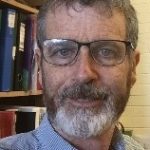 Peter Hayman is an agricultural scientist who has worked on the application of climate science to farming systems. His focus on low rainfall cropping and irrigated viticulture in southern Australia but has been involved in climate risk projects in Philippines, Cambodia, Sri Lanka and India. In 2004 he was appointed as Principal Scientist, Climate Applications with SARDI, prior to that time he was coordinator of climate applications in NSW DPI. He has worked closely with climate scientists, crop modellers, economists and farmers with a main interest on how the advances of climate science can be communicated and used in decision making.
Peter Hayman is an agricultural scientist who has worked on the application of climate science to farming systems. His focus on low rainfall cropping and irrigated viticulture in southern Australia but has been involved in climate risk projects in Philippines, Cambodia, Sri Lanka and India. In 2004 he was appointed as Principal Scientist, Climate Applications with SARDI, prior to that time he was coordinator of climate applications in NSW DPI. He has worked closely with climate scientists, crop modellers, economists and farmers with a main interest on how the advances of climate science can be communicated and used in decision making.
 Mariano Cossani is Senior Research Agronomist with SARDI, working on crop ecophysiology and abiotic stress adaptation. Mariano has an Agronomy Engineer degree from the University of Buenos Aires, and a Masters and a Ph. D. by the University of Lleida. His research experience encompasses aspects of resource capture and resource use efficiency of cereals, and adaptation of crops to the climate change effects, such as heat stress and drought. He developed methods based on empirical field data to assess the co-limitation of resources in wheat systems of Mediterranean environments that proved to be useful on other crops as canola. He has been working during five years for CIMMYT of the CGIAR System Organization, where he developed conceptual models for adapting wheat to hot environments through the use of physiological traits, phenotyping and strategic crossing. He has done oral presentations in diverse scientific meetings hold in countries of the five continents of the world.
Mariano Cossani is Senior Research Agronomist with SARDI, working on crop ecophysiology and abiotic stress adaptation. Mariano has an Agronomy Engineer degree from the University of Buenos Aires, and a Masters and a Ph. D. by the University of Lleida. His research experience encompasses aspects of resource capture and resource use efficiency of cereals, and adaptation of crops to the climate change effects, such as heat stress and drought. He developed methods based on empirical field data to assess the co-limitation of resources in wheat systems of Mediterranean environments that proved to be useful on other crops as canola. He has been working during five years for CIMMYT of the CGIAR System Organization, where he developed conceptual models for adapting wheat to hot environments through the use of physiological traits, phenotyping and strategic crossing. He has done oral presentations in diverse scientific meetings hold in countries of the five continents of the world.
 Julian Alston is a distinguished professor in the Department of Agricultural and Resource Economics at the University of California, Davis. He is a Fellow of the Agricultural and Applied Economics Association, a Distinguished Fellow of the Australasian Agricultural and Resource Economics Society, a Distinguished Scholar of the Western Agricultural Economics Association, a Fellow of the American Association of Wine Economists, an Honorary Life Member of the International Association of Agricultural Economists, and a vice-president of the Beeronomics Society. Alston is an agricultural economist known for his work on the economics of agricultural and food policy. Recent projects have emphasized science & technology policy and the economics of agricultural innovation; and food & nutrition policy, and the global challenges of poverty, malnutrition, and obesity.
Julian Alston is a distinguished professor in the Department of Agricultural and Resource Economics at the University of California, Davis. He is a Fellow of the Agricultural and Applied Economics Association, a Distinguished Fellow of the Australasian Agricultural and Resource Economics Society, a Distinguished Scholar of the Western Agricultural Economics Association, a Fellow of the American Association of Wine Economists, an Honorary Life Member of the International Association of Agricultural Economists, and a vice-president of the Beeronomics Society. Alston is an agricultural economist known for his work on the economics of agricultural and food policy. Recent projects have emphasized science & technology policy and the economics of agricultural innovation; and food & nutrition policy, and the global challenges of poverty, malnutrition, and obesity.
 Peter Appleford was appointed to lead the South Australian Research and Development Institute (SARDI) in June 2017. Peter is responsible for the executive management and oversight of the South Australian government primary industries research capability, investment and delivery. SARDI delivers robust scientific solutions to support sustainable and internationally competitive primary industries. Dr. Peter Appleford is a science graduate of the University of Melbourne, holds a PhD (Science) from James Cook University and is a member of the Institute of Public Administration and Australian Institute of Company Directors. He has spent nearly two decades as a senior leader in key Victorian Government agencies including the Department of Primary Industries and the Department of Sustainability and Environment. Peter is a highly-respected public sector executive with experience in implementing change while driving integrated and improved performance. He is proficient at delivering legacy-style change. He applies his four-fold technical expertise – driving change, delivery improvement, integration and leadership – to maximum impact within challenging and complex environments. Peter brings his visionary and energetic leadership style to inspire and drive better business outcomes. He applies decisive action and sound judgement to deliver value to SARDI’s objectives, their highly skilled people, stakeholders and the wider community.
Peter Appleford was appointed to lead the South Australian Research and Development Institute (SARDI) in June 2017. Peter is responsible for the executive management and oversight of the South Australian government primary industries research capability, investment and delivery. SARDI delivers robust scientific solutions to support sustainable and internationally competitive primary industries. Dr. Peter Appleford is a science graduate of the University of Melbourne, holds a PhD (Science) from James Cook University and is a member of the Institute of Public Administration and Australian Institute of Company Directors. He has spent nearly two decades as a senior leader in key Victorian Government agencies including the Department of Primary Industries and the Department of Sustainability and Environment. Peter is a highly-respected public sector executive with experience in implementing change while driving integrated and improved performance. He is proficient at delivering legacy-style change. He applies his four-fold technical expertise – driving change, delivery improvement, integration and leadership – to maximum impact within challenging and complex environments. Peter brings his visionary and energetic leadership style to inspire and drive better business outcomes. He applies decisive action and sound judgement to deliver value to SARDI’s objectives, their highly skilled people, stakeholders and the wider community.
 Pedro Aphalo studied agricultural engineering, with specialization in crop breeding, at the University of Buenos Aires where he also completed his M.Sc. in plant production. He was awarded a PhD by the University of Edinburgh. He held university lecturer positions both in Statistics and Environmental Metrics (University of Jyväskylä) and Plant Physiological Ecology (University of Helsinki). He currently leads the lab Sensory Photobiology and Ecophysiology of Plants at the University of Helsinki and holds a docentship in Physiological Plant Ecology at the University of Eastern Finland. He is communications officer of the UV4Plants scientific association and the editor-in-chief of the UV4Plants Bulletin. His core research in photobiology focused on whole-plant physiology, early with both ornamentals and wild native plants, and currently with trees and more ecologically and environmentally oriented questions. His recent work with highest impact has been related to the study of sunlight perception and signalling using state-of-the-art molecular methods such as RNAseq in plants grown or exposed outdoors.
Pedro Aphalo studied agricultural engineering, with specialization in crop breeding, at the University of Buenos Aires where he also completed his M.Sc. in plant production. He was awarded a PhD by the University of Edinburgh. He held university lecturer positions both in Statistics and Environmental Metrics (University of Jyväskylä) and Plant Physiological Ecology (University of Helsinki). He currently leads the lab Sensory Photobiology and Ecophysiology of Plants at the University of Helsinki and holds a docentship in Physiological Plant Ecology at the University of Eastern Finland. He is communications officer of the UV4Plants scientific association and the editor-in-chief of the UV4Plants Bulletin. His core research in photobiology focused on whole-plant physiology, early with both ornamentals and wild native plants, and currently with trees and more ecologically and environmentally oriented questions. His recent work with highest impact has been related to the study of sunlight perception and signalling using state-of-the-art molecular methods such as RNAseq in plants grown or exposed outdoors.
 David Connor is Emeritus Professor of Agronomy in the Faculty of Veterinary and Agricultural Sciences of The University of Melbourne, Australia, and Research Associate of CEIGRAM de La Universidad Politécnica de Madrid, Spain. His area of expertise is in agronomy, crop physiology and crop ecology. He currently works in canopy management and modeling of olive orchards, reviews research papers for various scientific journals, and offers consultancy in agronomy, resource management and research for agricultural development. Professor Connor is active in professional societies. He has served as President of the Australian Society of Agronomy and of the Victorian Branch of the Australian Institute of Agriculture. He is a Fellow of the Australian Institute of Agriculture (1988) and “Donald Medalist” (2003) of the Australian Society of Agronomy for outstanding contributions to research. During the period 1994–2001 he was Editor-in-Chief of Field Crops Research. Professor Connor has traveled widely and has also undertaken research and development projects in Kenya, Philippines, Bangladesh and Mauritania. He has also held visiting appointments in research and/or teaching in USA, Colombia, China, Argentina and Spain. During his career he has published over 100 papers of original research. He is also author, with Professor R.S. Loomis (University of California) and Professor K.G. Cassman (University of Nebraska), of the recently (2011) revised major textbook, “Crop ecology: productivity and management in agricultural systems” (Cambridge University Press). The book has been translated into Japanese, Spanish and Chinese.
David Connor is Emeritus Professor of Agronomy in the Faculty of Veterinary and Agricultural Sciences of The University of Melbourne, Australia, and Research Associate of CEIGRAM de La Universidad Politécnica de Madrid, Spain. His area of expertise is in agronomy, crop physiology and crop ecology. He currently works in canopy management and modeling of olive orchards, reviews research papers for various scientific journals, and offers consultancy in agronomy, resource management and research for agricultural development. Professor Connor is active in professional societies. He has served as President of the Australian Society of Agronomy and of the Victorian Branch of the Australian Institute of Agriculture. He is a Fellow of the Australian Institute of Agriculture (1988) and “Donald Medalist” (2003) of the Australian Society of Agronomy for outstanding contributions to research. During the period 1994–2001 he was Editor-in-Chief of Field Crops Research. Professor Connor has traveled widely and has also undertaken research and development projects in Kenya, Philippines, Bangladesh and Mauritania. He has also held visiting appointments in research and/or teaching in USA, Colombia, China, Argentina and Spain. During his career he has published over 100 papers of original research. He is also author, with Professor R.S. Loomis (University of California) and Professor K.G. Cassman (University of Nebraska), of the recently (2011) revised major textbook, “Crop ecology: productivity and management in agricultural systems” (Cambridge University Press). The book has been translated into Japanese, Spanish and Chinese.
 Ford Denison earned a Ph.D. in Crop Science from Cornell, and worked for USDA as a Plant Physiologist before joining the department of Agronomy and Range Science at UC Davis. There, he directed the first ten years of a long-term experiment now in its 24th year, taught Crop Ecology, and did basic and applied research on the legume-rhizobia symbiosis. In 2005 he joined the University of Minnesota, where he advises a three-site long-term experiment and continues laboratory and field research mostly on nitrogen fixation and on links between evolution and agriculture. He has published in Nature, Science, Proceedings of the National Academy of Sciences, Proceedings of the Royal Society, Philosophical Transactions of the Royal Society, American Naturalist, Evolution, and Journal of Evolutionary Biology, in addition to multiple publications in Agronomy Journal and Field Crops Research. An article and subsequent book on Darwinian Agriculture led to a series of five lectures at the International Rice Research Institute, the agriculture keynote at the Applied Evolution Summit, and CGIAR’s Science Forum 2011.
Ford Denison earned a Ph.D. in Crop Science from Cornell, and worked for USDA as a Plant Physiologist before joining the department of Agronomy and Range Science at UC Davis. There, he directed the first ten years of a long-term experiment now in its 24th year, taught Crop Ecology, and did basic and applied research on the legume-rhizobia symbiosis. In 2005 he joined the University of Minnesota, where he advises a three-site long-term experiment and continues laboratory and field research mostly on nitrogen fixation and on links between evolution and agriculture. He has published in Nature, Science, Proceedings of the National Academy of Sciences, Proceedings of the Royal Society, Philosophical Transactions of the Royal Society, American Naturalist, Evolution, and Journal of Evolutionary Biology, in addition to multiple publications in Agronomy Journal and Field Crops Research. An article and subsequent book on Darwinian Agriculture led to a series of five lectures at the International Rice Research Institute, the agriculture keynote at the Applied Evolution Summit, and CGIAR’s Science Forum 2011.
 Tony Fischer came from a wheat and sheep farm near Boree Creek in southern New South Wales, Australia, a commercial operation in which he was involved for over 50 years. He completed degrees in Agricultural Science at the University of Melbourne before pursuing a PhD in plant physiology at the University of California, Davis, USA. He worked as a crop agronomist and physiologist for the NSW State Department of Agriculture and at CSIRO, and in the same capacity at CIMMYT, Mexico, from 1970 to 1975. He later returned to CIMMYT as Wheat Program Director (1988–95), following which he was a program manager in crops and soils at the Australian Centre for International Agricultural Research (ACIAR) in Canberra, Australia. He is now an Honorary Research Fellow at CSIRO Plant Industry, also in Canberra. His research publications in plant and crop physiology and agronomy are widely cited. He has served on several International Center Boards of Trustees as well as the Board of Australia’s Grains Research and Development Corporation (GRDC), and has travelled widely in the grain cropping regions of the world, especially those of Asia and Latin America. He has received many awards for contributions to crop science, including the Colin Donald and William Farrer medals, and Fellowships of the Australian Institute of Agriculture, the Australian Academy of Technological Sciences and Engineering, and the American Crop Science and Agronomy societies. In 2007 he was elected a Member of the Order of Australia.
Tony Fischer came from a wheat and sheep farm near Boree Creek in southern New South Wales, Australia, a commercial operation in which he was involved for over 50 years. He completed degrees in Agricultural Science at the University of Melbourne before pursuing a PhD in plant physiology at the University of California, Davis, USA. He worked as a crop agronomist and physiologist for the NSW State Department of Agriculture and at CSIRO, and in the same capacity at CIMMYT, Mexico, from 1970 to 1975. He later returned to CIMMYT as Wheat Program Director (1988–95), following which he was a program manager in crops and soils at the Australian Centre for International Agricultural Research (ACIAR) in Canberra, Australia. He is now an Honorary Research Fellow at CSIRO Plant Industry, also in Canberra. His research publications in plant and crop physiology and agronomy are widely cited. He has served on several International Center Boards of Trustees as well as the Board of Australia’s Grains Research and Development Corporation (GRDC), and has travelled widely in the grain cropping regions of the world, especially those of Asia and Latin America. He has received many awards for contributions to crop science, including the Colin Donald and William Farrer medals, and Fellowships of the Australian Institute of Agriculture, the Australian Academy of Technological Sciences and Engineering, and the American Crop Science and Agronomy societies. In 2007 he was elected a Member of the Order of Australia.
 Richard Gray joined the University of Saskatchewan in 1990 after completing his PhD in Agricultural & Resource Economics from UC Berkeley. Over time his policy research has increasingly focused on various aspects of agricultural research and innovation systems. From 2003 to 2013 he led the Canadian Agricultural Innovation Research Network. Richard is a Fellow of the Canadian Agricultural Economics Society. He currently holds the grain Policy Research Chair and regularly provides advice to farm organisations and government regarding innovation policy. His active engagement in the family grain farm continues to provide first-hand experience with agriculture.
Richard Gray joined the University of Saskatchewan in 1990 after completing his PhD in Agricultural & Resource Economics from UC Berkeley. Over time his policy research has increasingly focused on various aspects of agricultural research and innovation systems. From 2003 to 2013 he led the Canadian Agricultural Innovation Research Network. Richard is a Fellow of the Canadian Agricultural Economics Society. He currently holds the grain Policy Research Chair and regularly provides advice to farm organisations and government regarding innovation policy. His active engagement in the family grain farm continues to provide first-hand experience with agriculture.
 Martin Kropff joined CIMMYT as Director General in 2015, after working at Wageningen University and Research Center (Wageningen UR) in the Netherlands, where he was Rector Magnificus and Vice Chairman of the Executive Board for almost 10 years. He earned bachelor’s and master’s degrees in biology at Utrecht University in the Netherlands and a Ph.D. in agricultural and environmental sciences at Wageningen. From 1990 to 1995, Kropff was the systems agronomist at the International Rice Research Institute (IRRI) in the Philippines where he led an international program with National Agricultural Research Systems and Universities in nine Asian countries on systems research and simulation for rice production. Since 1995, he has served successive roles at Wageningen UR, including as Professor and Director General of the Plant Sciences Group and on the Executive Board. He is still connected to Wageningen UR as a Professor. From 2013 to 2015, he was a member of the Board of Directors of CGIAR, the 15-member consortium of international agricultural researchers to which CIMMYT and IRRI belong. He chaired the new System Management Board of the reformed CGIAR from 2015 to 2017 and he is still a member.
Martin Kropff joined CIMMYT as Director General in 2015, after working at Wageningen University and Research Center (Wageningen UR) in the Netherlands, where he was Rector Magnificus and Vice Chairman of the Executive Board for almost 10 years. He earned bachelor’s and master’s degrees in biology at Utrecht University in the Netherlands and a Ph.D. in agricultural and environmental sciences at Wageningen. From 1990 to 1995, Kropff was the systems agronomist at the International Rice Research Institute (IRRI) in the Philippines where he led an international program with National Agricultural Research Systems and Universities in nine Asian countries on systems research and simulation for rice production. Since 1995, he has served successive roles at Wageningen UR, including as Professor and Director General of the Plant Sciences Group and on the Executive Board. He is still connected to Wageningen UR as a Professor. From 2013 to 2015, he was a member of the Board of Directors of CGIAR, the 15-member consortium of international agricultural researchers to which CIMMYT and IRRI belong. He chaired the new System Management Board of the reformed CGIAR from 2015 to 2017 and he is still a member.
 Peter Langridge is Emeritus Professor at the University of Adelaide, Australia. Peter established the Australian Centre for Plant Functional Genomics (ACPFG) and was appointed Chief Executive Officer in 2003. In 2014 Peter resigned as CEO of ACPFG to focus on his role on the boards of several research organisations in Europe, North America and in developing countries. Peter’s interests have focused on the role of modern technologies in crop improvement with a particular focus on the importance of science, education and collaboration in helping to improve agricultural productivity.
Peter Langridge is Emeritus Professor at the University of Adelaide, Australia. Peter established the Australian Centre for Plant Functional Genomics (ACPFG) and was appointed Chief Executive Officer in 2003. In 2014 Peter resigned as CEO of ACPFG to focus on his role on the boards of several research organisations in Europe, North America and in developing countries. Peter’s interests have focused on the role of modern technologies in crop improvement with a particular focus on the importance of science, education and collaboration in helping to improve agricultural productivity.
 Renee Lafitte works at the interface of crop ecophysiology and crop improvement, with the goal of improving the resilience of crops and cropping systems to abiotic stress. She received a M.Sc. in Agronomy and Ph.D in Crop Physiology from the University of California, Davis. Renee began field phenotyping for stress tolerance in 1985 at the International Center for Maize and Wheat Improvement (CIMMYT) in Mexico, using managed drought and low-nitrogen environments in breeding programs. She also developed and delivered courses in on-farm research for breeders and agronomists from partner countries in Latin America, Africa, and Asia. In 1995, she was employed at the International Rice Research Institute (IRRI) in the Philippines, where she was responsible for field-based and greenhouse phenotyping to assess genetic variation in rice drought response, including approaches of QTL analysis, gene expression profiling, and studies of inheritance. She also served as team leader for IRRI’s project on genetic enhancement for improving productivity and human nutrition in fragile environments, working closely with national program collaborators and students to advance applied research goals. Renee joined DuPont Pioneer in 2005, with responsibility for developing high-throughput field evaluation of novel transgenic corn lines with greater yield stability under drought and nutrient stress. She was named a Pioneer Research Fellow in 2011 and a DuPont Fellow in 2014. Renee is based at Pioneer’s North American managed stress site in Woodland, California.
Renee Lafitte works at the interface of crop ecophysiology and crop improvement, with the goal of improving the resilience of crops and cropping systems to abiotic stress. She received a M.Sc. in Agronomy and Ph.D in Crop Physiology from the University of California, Davis. Renee began field phenotyping for stress tolerance in 1985 at the International Center for Maize and Wheat Improvement (CIMMYT) in Mexico, using managed drought and low-nitrogen environments in breeding programs. She also developed and delivered courses in on-farm research for breeders and agronomists from partner countries in Latin America, Africa, and Asia. In 1995, she was employed at the International Rice Research Institute (IRRI) in the Philippines, where she was responsible for field-based and greenhouse phenotyping to assess genetic variation in rice drought response, including approaches of QTL analysis, gene expression profiling, and studies of inheritance. She also served as team leader for IRRI’s project on genetic enhancement for improving productivity and human nutrition in fragile environments, working closely with national program collaborators and students to advance applied research goals. Renee joined DuPont Pioneer in 2005, with responsibility for developing high-throughput field evaluation of novel transgenic corn lines with greater yield stability under drought and nutrient stress. She was named a Pioneer Research Fellow in 2011 and a DuPont Fellow in 2014. Renee is based at Pioneer’s North American managed stress site in Woodland, California.
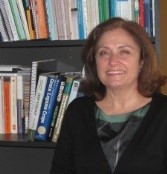 M. Inés Mínguez is Full Professor of Crop Ecology and Agronomy of the Technical University of Madrid (UPM) since 1991. She has also worked at the University of Córdoba, Spain (13 years), at The Grassland Research Institute, UK (1 year), and at The University of Melbourne and Horsham Dept of Primary Industries, Australia (1year). Her research started in nitrogen fixation of grain legumes then extended to the role of legumes in crop rotations focussing on water stress and water use that resulted in the construction of faba bean crop model. During that time she also coordinated reports in the 1990s on projected irrigation requirements under climate change for the National Hydrological Plan of the Spanish Ministry of Infrastructures, and later focussed on the uncertainties linked to impact evaluations and adaptations and tools for defining new adapted cultivars to future conditions across Europe. More recently she has applied yield gap analysis to yield insurance design in cereals and participates in the International Network TempAg. At present she is exploring new cropping system approaches in a European-wide project and is much interested on food security and the need to consolidate studies at territorial scale. She has been principal researcher and researcher in 25 projects; has 85 published references and 10 book chapters. She has undertaken national and international consulting, worked for the European Commission at DG-Research and is currently on the Governing Board of FACCE-JPI, on “Agriculture, Food Security and Climate Change”. She was Director of CEIGRAM (Research Centre for the Management of Agricultural and Environmental Risks, UPM) and is currently its Deputy-Director.
M. Inés Mínguez is Full Professor of Crop Ecology and Agronomy of the Technical University of Madrid (UPM) since 1991. She has also worked at the University of Córdoba, Spain (13 years), at The Grassland Research Institute, UK (1 year), and at The University of Melbourne and Horsham Dept of Primary Industries, Australia (1year). Her research started in nitrogen fixation of grain legumes then extended to the role of legumes in crop rotations focussing on water stress and water use that resulted in the construction of faba bean crop model. During that time she also coordinated reports in the 1990s on projected irrigation requirements under climate change for the National Hydrological Plan of the Spanish Ministry of Infrastructures, and later focussed on the uncertainties linked to impact evaluations and adaptations and tools for defining new adapted cultivars to future conditions across Europe. More recently she has applied yield gap analysis to yield insurance design in cereals and participates in the International Network TempAg. At present she is exploring new cropping system approaches in a European-wide project and is much interested on food security and the need to consolidate studies at territorial scale. She has been principal researcher and researcher in 25 projects; has 85 published references and 10 book chapters. She has undertaken national and international consulting, worked for the European Commission at DG-Research and is currently on the Governing Board of FACCE-JPI, on “Agriculture, Food Security and Climate Change”. She was Director of CEIGRAM (Research Centre for the Management of Agricultural and Environmental Risks, UPM) and is currently its Deputy-Director.
 Kathy Ophel Keller is the Research Chief, Sustainable Systems Research Division, SARDI. Sustainable Systems Division covers SARDI research in cropping, viticulture and horticulture systems. It comprises science programs in Plant Health and Biosecurity, Entomology, Soil Biology and Diagnostics, New Variety Agronomy and Crop Improvement Science Areas, Climate Applications as well as Water Resources, Viticulture and Irrigated Crops. The Division assists the South Australian crop sectors by breeding and evaluation of new varieties, improving crop agronomy and providing practical and productive ways to maintain production by managing risk from SA’s variable and changing climate, plant diseases and pests. Dr. Ophel Keller is a recognised expert at an international and national level in development and utilisation of DNA technology to monitor organisms in complex environments such as soil. Over the past 15 years, Dr. Ophel Keller has been involved in the development and delivery of unique technology to measure plant pathogens in soil, including the development of PredictaPT to assess the risks of potato soilborne pathogens prior to planting a crop.
Kathy Ophel Keller is the Research Chief, Sustainable Systems Research Division, SARDI. Sustainable Systems Division covers SARDI research in cropping, viticulture and horticulture systems. It comprises science programs in Plant Health and Biosecurity, Entomology, Soil Biology and Diagnostics, New Variety Agronomy and Crop Improvement Science Areas, Climate Applications as well as Water Resources, Viticulture and Irrigated Crops. The Division assists the South Australian crop sectors by breeding and evaluation of new varieties, improving crop agronomy and providing practical and productive ways to maintain production by managing risk from SA’s variable and changing climate, plant diseases and pests. Dr. Ophel Keller is a recognised expert at an international and national level in development and utilisation of DNA technology to monitor organisms in complex environments such as soil. Over the past 15 years, Dr. Ophel Keller has been involved in the development and delivery of unique technology to measure plant pathogens in soil, including the development of PredictaPT to assess the risks of potato soilborne pathogens prior to planting a crop.
 Tim Reeves has worked for over 50 years in agricultural research, development and extension, focussed on sustainable agriculture in Australia and overseas. He was a pioneer of no-till/conservation agriculture research when based at the Rutherglen Research Institute in NE Victoria. His professional career includes: Foundation Professor of Sustainable Agricultural Production, Adelaide University (1992-95) and Director General of the International Maize and Wheat Improvement Center (CIMMYT) based in Mexico (1995-2002). His other international roles have included: Member, United Nations Millennium Project Task Force on Hunger; and Member, European Commission Expert Group for Evaluation of Framework and H2020 Projects. He has also been a Senior Expert with the Food and Agriculture Organization of the United Nations (FAO) working on Save and Grow – sustainable intensification of smallholder agriculture – and in 2016 lead a FAO consultation in Cuba, on the development and adoption of Conservation Agriculture. He has recently returned from India (February 2018), where he chaired a review of the project ‘Sustainable and Resilient Farming Systems Intensification in the Eastern Gangetic Plains’ for ACIAR. He has chaired or participated in many other scientific reviews, including for: FAO; the Bill and Melinda Gates Foundation; Government of India; MLA and Dairy Australia. Professor Reeves has been a Board Director of GRDC; the Future Farm Industries Cooperative Research Centre (CRC); the Molecular Plant Breeding CRC; and of FAR New Zealand. He is currently Board Chair of FAR (Foundation for Arable Research) Australia and a Board Director of the Crawford Fund. Tim is now Professor in Residence at the Dookie Campus of the University of Melbourne, where he has also been recognised as a Centenary of Agriculture Medallist. In December 2016 the University awarded him a Doctor of Agricultural Science honoris causa. Tim is also a former President of the Australian Society of Agronomy and in 2017 the Society awarded him the prestigious Professor C M Donald Medal for lifetime achievement. He is currently a Fellow of the Academy of Technological Sciences and Engineering, where he is also Chair of the Academy’s Agriculture Forum. He is an Honorary Professor in the Chinese Academy of Agricultural Sciences. In 2003 he received the Centenary of Federation Medal. He is also Director and Principal of Timothy G. Reeves and Associates. Pty. Ltd., specializing in national and international consulting in agricultural research. His main areas of current focus are on global food security and the sustainable intensification of agriculture and farming systems.
Tim Reeves has worked for over 50 years in agricultural research, development and extension, focussed on sustainable agriculture in Australia and overseas. He was a pioneer of no-till/conservation agriculture research when based at the Rutherglen Research Institute in NE Victoria. His professional career includes: Foundation Professor of Sustainable Agricultural Production, Adelaide University (1992-95) and Director General of the International Maize and Wheat Improvement Center (CIMMYT) based in Mexico (1995-2002). His other international roles have included: Member, United Nations Millennium Project Task Force on Hunger; and Member, European Commission Expert Group for Evaluation of Framework and H2020 Projects. He has also been a Senior Expert with the Food and Agriculture Organization of the United Nations (FAO) working on Save and Grow – sustainable intensification of smallholder agriculture – and in 2016 lead a FAO consultation in Cuba, on the development and adoption of Conservation Agriculture. He has recently returned from India (February 2018), where he chaired a review of the project ‘Sustainable and Resilient Farming Systems Intensification in the Eastern Gangetic Plains’ for ACIAR. He has chaired or participated in many other scientific reviews, including for: FAO; the Bill and Melinda Gates Foundation; Government of India; MLA and Dairy Australia. Professor Reeves has been a Board Director of GRDC; the Future Farm Industries Cooperative Research Centre (CRC); the Molecular Plant Breeding CRC; and of FAR New Zealand. He is currently Board Chair of FAR (Foundation for Arable Research) Australia and a Board Director of the Crawford Fund. Tim is now Professor in Residence at the Dookie Campus of the University of Melbourne, where he has also been recognised as a Centenary of Agriculture Medallist. In December 2016 the University awarded him a Doctor of Agricultural Science honoris causa. Tim is also a former President of the Australian Society of Agronomy and in 2017 the Society awarded him the prestigious Professor C M Donald Medal for lifetime achievement. He is currently a Fellow of the Academy of Technological Sciences and Engineering, where he is also Chair of the Academy’s Agriculture Forum. He is an Honorary Professor in the Chinese Academy of Agricultural Sciences. In 2003 he received the Centenary of Federation Medal. He is also Director and Principal of Timothy G. Reeves and Associates. Pty. Ltd., specializing in national and international consulting in agricultural research. His main areas of current focus are on global food security and the sustainable intensification of agriculture and farming systems.
 Victor Sadras has measured, modelled and developed theory on the water, nitrogen and carbon economies of annual (wheat, maize, oat, cotton, sunflower, soybean, pulses) and perennial crops (grapevine, olive) in rainfed and irrigated systems of Australia, Argentina, China and Spain. His current international network of scientific partnerships includes Universities (Nebraska, Kansas, Minnesota, Lleida, Helsinki, Buenos Aires, Austral Chile, North West A&F China, Cordoba Spain) and research organisations (CSIC Spain, FAO, INRA France, INTA Argentina, INIA Uruguay, ICRISAT India). His most important contributions to science are a conceptual model of crop yield accounting for ecological and evolutionary factors including genomic conflict, transitions in the units of selection and phenotypic plasticity, and advanced theory of resource co-limitation. He received an award from the Australian Society of Viticulture and Oenology for his experimental demonstration of thermal decoupling of sugar and anthocyanin in Syrah berries and wine. He was expert consultant with FAO on crop responses to water and yield gap analysis (2005-2015) and delivered the 2017 Elmer Heyne Distinguished Crop Science Lecture at Kansas State University. Sadras published 205 papers in peer-reviewed journals, returning 10,900 citations, and h-index = 61 (Google Scholar, July 2018). He is the co-editor-in-chief of Field Crops Research, and member of editorial boards of Irrigation Science (since 2013), Crop and Pasture Science (since 2009) and European Journal of Agronomy (2009-15). He is the senior editor of Crop Physiology (Academic Press), a book used in university courses worldwide, and lead author of “Yield gap analysis of rainfed and irrigated crops” FAO Water Report 41.
Victor Sadras has measured, modelled and developed theory on the water, nitrogen and carbon economies of annual (wheat, maize, oat, cotton, sunflower, soybean, pulses) and perennial crops (grapevine, olive) in rainfed and irrigated systems of Australia, Argentina, China and Spain. His current international network of scientific partnerships includes Universities (Nebraska, Kansas, Minnesota, Lleida, Helsinki, Buenos Aires, Austral Chile, North West A&F China, Cordoba Spain) and research organisations (CSIC Spain, FAO, INRA France, INTA Argentina, INIA Uruguay, ICRISAT India). His most important contributions to science are a conceptual model of crop yield accounting for ecological and evolutionary factors including genomic conflict, transitions in the units of selection and phenotypic plasticity, and advanced theory of resource co-limitation. He received an award from the Australian Society of Viticulture and Oenology for his experimental demonstration of thermal decoupling of sugar and anthocyanin in Syrah berries and wine. He was expert consultant with FAO on crop responses to water and yield gap analysis (2005-2015) and delivered the 2017 Elmer Heyne Distinguished Crop Science Lecture at Kansas State University. Sadras published 205 papers in peer-reviewed journals, returning 10,900 citations, and h-index = 61 (Google Scholar, July 2018). He is the co-editor-in-chief of Field Crops Research, and member of editorial boards of Irrigation Science (since 2013), Crop and Pasture Science (since 2009) and European Journal of Agronomy (2009-15). He is the senior editor of Crop Physiology (Academic Press), a book used in university courses worldwide, and lead author of “Yield gap analysis of rainfed and irrigated crops” FAO Water Report 41.
 Primal Silva is a veterinarian and a Ph.D. scientist with several years of postdoctoral training. He obtained his Ph.D. from the University of Sydney, Australia, and conducted his postdoctoral studies at McMaster University and at the Ontario Veterinary College, University of Guelph. He worked as an Assistant Professor at the University of Guelph before joining the federal public service in 1993 where he has held several positions with increasing responsibilities. Dr. Silva is substantively the Chief Science Operating Officer (CSOO) with management accountability for all 13 laboratories of the Canadian Food Inspection Agency. Prior to this he served as Executive Director of the CFIA’s Animal Health Science Directorate. As the CSOO, he is responsible for providing strategic leadership and ensuring sound management of CFIA’s 13 laboratories in order to deliver the Agency’s high priority needs in mandated science functions in Food Safety, Animal Health and Plant Health, including the daily operational continuity and stability of the Branch’s laboratory programs and services. He provides strategic leadership and manages the Agency’s research program, the CFIA’s science engagements with national and international organizations and is a contributing member to numerous committees and working groups at domestic and international levels. Dr. Silva is a contributing member to numerous committees and working groups at domestic and international levels, including the Scientific Advisory Body of the Organization for Economic Cooperation and Development (OECD).
Primal Silva is a veterinarian and a Ph.D. scientist with several years of postdoctoral training. He obtained his Ph.D. from the University of Sydney, Australia, and conducted his postdoctoral studies at McMaster University and at the Ontario Veterinary College, University of Guelph. He worked as an Assistant Professor at the University of Guelph before joining the federal public service in 1993 where he has held several positions with increasing responsibilities. Dr. Silva is substantively the Chief Science Operating Officer (CSOO) with management accountability for all 13 laboratories of the Canadian Food Inspection Agency. Prior to this he served as Executive Director of the CFIA’s Animal Health Science Directorate. As the CSOO, he is responsible for providing strategic leadership and ensuring sound management of CFIA’s 13 laboratories in order to deliver the Agency’s high priority needs in mandated science functions in Food Safety, Animal Health and Plant Health, including the daily operational continuity and stability of the Branch’s laboratory programs and services. He provides strategic leadership and manages the Agency’s research program, the CFIA’s science engagements with national and international organizations and is a contributing member to numerous committees and working groups at domestic and international levels. Dr. Silva is a contributing member to numerous committees and working groups at domestic and international levels, including the Scientific Advisory Body of the Organization for Economic Cooperation and Development (OECD).
 Holger Kirchmann has a degree in chemistry (Dortmund University), a biology education (Uppsala University) and a PhD in soil science (Swedish University of Agricultural Sciences, SLU). He received a professorship in Plant Nutrition and Soil Fertility at the Department of Soil and Environment, SLU, in 2003. His research includes nutrient turnover especially of nitrogen, phosphorus and trace elements in soil and changes in long-term soil fertility due to different fertilization regimes. Currently, research topics such as subsoil improvement, recycling of plant nutrients, placement of mineral fertilizers and selenium fertilization are addressed. He teaches courses in plant nutrition, soil biology and soil sciences.
Holger Kirchmann has a degree in chemistry (Dortmund University), a biology education (Uppsala University) and a PhD in soil science (Swedish University of Agricultural Sciences, SLU). He received a professorship in Plant Nutrition and Soil Fertility at the Department of Soil and Environment, SLU, in 2003. His research includes nutrient turnover especially of nitrogen, phosphorus and trace elements in soil and changes in long-term soil fertility due to different fertilization regimes. Currently, research topics such as subsoil improvement, recycling of plant nutrients, placement of mineral fertilizers and selenium fertilization are addressed. He teaches courses in plant nutrition, soil biology and soil sciences.
 Jill Lenne has 38 yrs experience in tropical agricultural research, management & development, including 15 yrs with CGIAR institutes (CIAT and ICRISAT) and 8 yrs with UK-based institutes. She also has 18 yrs experience as a consultant in project and programme review and evaluation through short-term assignments (1 week to 3 months) in more than 30 countries in Latin America, Asia and sub-Saharan Africa. She has worked semi-arid cropping systems; horticultural especially vegetable systems; tropical rice systems; tropical fodder and crop/livestock systems; and tropical agro-biodiversity management.
Jill Lenne has 38 yrs experience in tropical agricultural research, management & development, including 15 yrs with CGIAR institutes (CIAT and ICRISAT) and 8 yrs with UK-based institutes. She also has 18 yrs experience as a consultant in project and programme review and evaluation through short-term assignments (1 week to 3 months) in more than 30 countries in Latin America, Asia and sub-Saharan Africa. She has worked semi-arid cropping systems; horticultural especially vegetable systems; tropical rice systems; tropical fodder and crop/livestock systems; and tropical agro-biodiversity management.